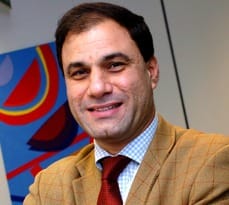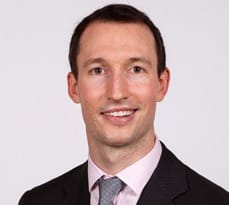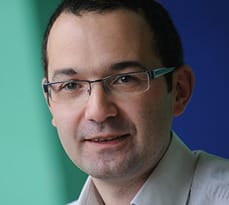The more you learn the more you earn – why a business school entrepreneurship programme will unleash your potential.

“Some people are naturally gifted entrepreneurs,” says beer magnate and entrepreneur Lord Bilimoria. “But anyone who builds a business needs inspiration, education and an opportunity – and for that, business schools are invaluable.”

Bilimoria knows a thing or two about entrepreneurship. As a Cambridge student with a £20,000 debt he famously dreamed up the idea of a beer “with the refreshment of a lager and the smoothness of an ale” to accompany all food, including curry. Today, the company he founded, Cobra Beer, supplies many of the UK’s licensed Indian restaurants and is available in all major supermarket chains and off licences, and is exported to 40 countries. It is manufactured in three countries – the UK, Belgium and his native India – with a retail value turnover of £178m.
It’s that experience – of building a business from first principles – that underlines his belief that no matter how much talent you have, entrepreneurship programmes are vital. “You get business skills, tutoring, mentoring, the opportunity to try out ideas without risk and the environment to learn from your fellow students,” he says. “In fact, one of the most important things a business school teaches is that you can never stop learning,” he says. “Ultimately, the more you learn, the more you earn.” So much for the idea that business nous can’t be taught.

Another Cambridge alumnus, Matt McLaren (MBA 2014), credits Cambridge Judge with giving him the business tools to set up his food waste company Entomics – but says simply having his eyes opened to the possibilities of setting up on his own was just as, if not more, important. “Business school made me realise that entrepreneurship is not rarefied air, but about normal people who are action-focused. Just the experience of a business school exposes you to different cultures and different disciplines. I’d be having lunch with PhD students who were chemists, mathematicians and others who had started their own businesses. That diversity cannot help but sow seeds of ideas and fuel creativity.”
In fact, McLaren’s story is a classic example of how the business school experience enables would-be entrepreneurs to evolve and develop themselves and their ideas. “My background was finance but I joined people from other disciplines and went on ‘hackathon’ weekends where you built stuff. Even when those projects didn’t come off, the process encouraged you to practise using the business tools but also to think creatively, to try things out.” And when McLaren and friends from biology and chemical engineering won a Cambridge CTEC sustainability challenge with a revolutionary idea for composting food waste, it gave him the confidence to build up the idea to a business.
“We tied in with Accelerate Cambridge (the School’s accelerator programme), which made it easy to transition the idea from business school to the working world because the coursework tied in so well. We learned the pitfalls, were able to try things safely, learn about investors – and that was on top of learning the formal business skills.”

Abel Ureta-Vidal used the skills he learned on Cambridge Judge’s entrepreneurship programmes to launch bioinformatics consultancy Eagle Genomics. “There’s a misconception that entrepreneurs are mad people who take huge risks,” he says. “But it’s all about how to assess that risk, to take everything one small step at a time, taking small, calculated risks that you feel you can afford – and then it’s often barely a risk at all.”
“You could learn business skills from a book,” he says, “but books are theoretical – the practice is much more complex. Sometimes in real life the theory runs away, or processes take too long, and you have to react quickly. Experiencing that first hand during the course, or learning case studies from tutors, mentors and other students teaches you so much more about the reality than a book can.
“I recently went back to CJBS to talk to students on the Entrepreneurship Centre’s Ignite programme (a one-week programme for aspiring entrepreneurs) about how you also have to be prepared to make those decisions without the data. As a scientist, if I don’t have complete data, I’ll go back to the lab and run another experiment or trial until I’ve got my data. But as a businessman, you sometimes have to accept that’s all the data you’re going to get and you have to go left or right without all the information. But even knowing you will have to do that prepares you for those days – it’s another way the entrepreneurship programmes, listening to people who are doing it, can give you preparation you wouldn’t get anywhere else.”
There are of course certain natural attributes that will help any would-be entrepreneur. “You’ve got to have guts,” says Bilimoria. “Starting up on your own means risking or sacrificing something – a career, an existing job, a reliable income source. So you have to be bold and have faith and confidence in your idea – and you need resilience. You need to deal with the word ‘no’ because you’ll hear it a lot.
“Entrepreneurs are often the biggest obstacle to themselves – you have to learn when to let go,” he says. “You build a team around you that not only works for you but gives you advice you can trust – not just your staff, but accountants, PR people, marketing firms, lawyers, ad agencies – they are all your team. But entrepreneurship programmes teach you this, teach you to think in a way that bases your decisions on solid business thinking.”
So are entrepreneurs born or made? “You do need that determination,” says Bilimoria. “But there are so many aspects to running your own business and that’s why business schools are invaluable. With the support, knowledge, education, skills, tools behind you – then you are ready to be unleashed!”

